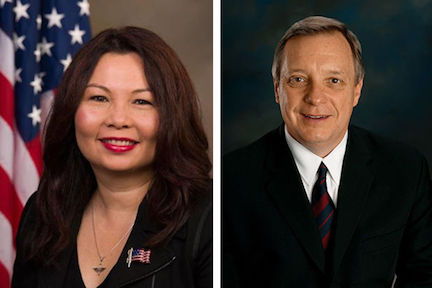Airlines squeezed by delays in $29 billion US rescue package
U.S. airlines’ desperate bid for $29 billion in government rescue cash is being frustrated by a lengthening process and demands that companies provide more detailed financial information, people familiar with the situation said.
Carriers that filed April 3 for the grants intended to help meet payroll costs expected the checks to begin arriving days ago, said people familiar with the aid discussions who asked not to be identified because the talks are private. Instead, U.S. Treasury officials have asked for another round of data that appears to be more related to a separate loan process instead of the cash grants, further delaying the relief, the people said.
The federal stimulus bill provided for carriers to receive payments within 10 days after the law was signed March 27. That would have been Monday, though the legislation gave Treasury Secretary Steve Mnuchin discretion on the timing. The additional demand for information was so detailed it would take more than a week to review all the submissions, one person said.
“Treasury’s preliminary guidance did not provide applicants with clear direction on a number of critical items,” two U.S. senators from Illinois, where United Airlines Holdings Inc. is based, wrote to Mnuchin in a letter Wednesday. Senator Tammy Duckworth and Senator Dick Durbin, both Democrats, called on the agency “to make sure the confusing application process doesn’t hamper the ability of applicants to receive the funds intended for them.”

Vanishing Demand
The U.S. airline industry has been pummeled by a collapse in demand as the new coronavirus spread worldwide. Air travelers passing through U.S. security tumbled to 97,130 Tuesday, a 95% drop from the same day last year. Airlines have grounded planes, cut flying capacity as much as 80%, placed workers on voluntary leaves and frozen hiring to help cut costs until passengers begin to return.
In addition to the $29 billion in airline payroll grants, the $2 trillion federal stimulus package includes $3 billion in payroll assistance for airline contractors, another $29 billion for cargo and passenger airlines in loans and $10 billion in grants to airports.
But the delays in the assistance has put companies in a very difficult position, the people said. If they accept the payroll grants, they can’t lay off any employees. But each day they have to wait is costing them more money. Some smaller airlines may not have the finances to survive if the process stretches out weeks.
Airline aid isn’t the only part of the giant government rescue package to get hung up by the details. The Trump administration’s $349 billion small-business rescue has hit similar snags as a flood of applications overwhelmed banks and more questions than answers piled up about loan terms.
While the stimulus bill was meant to provide a quick infusion of cash into struggling businesses, getting that much public funding efficiently and responsibly into private hands was always going to be a challenge. The legislation also calls for airlines to give equity, options or warrants to the government in exchange for the aid, a requirement that some lawmakers and unions worry could complicate the process and slow down the payments if airlines balk at the terms Mnuchin seeks.
Late Payments
A Treasury Department spokesman didn’t immediately reply to a request for comment.
One carrier, Ravn Air Group Inc. in Anchorage, Alaska, already has filed for bankruptcy protection and some smaller airlines and cargo companies could follow if aid is delayed.
A Standard & Poor’s index of the five largest U.S. carriers plunged 42% from March 1 through Wednesday, compared with a 6.9% drop in the S&P 500.
Senators Duckworth and Durbin asked Treasury in their letter for assurance that there would be no delay in applications that had to be refiled because of unclear instructions. They also asked that details of aid distributed be made public, along with the metrics used to allocate it.
The aid package already had been criticized by some members of Congress and airline labor unions for requiring carriers to offer some form of equity, warrants or options to compensate the government for the cash. The concern is that airlines would be hesitant to agree to such deals, potentially putting jobs at greater risk.
Spurred by unions and airlines, numerous lawmakers have been urging Treasury to act more quickly. House Speaker Nancy Pelosi and Senate Democratic leader Chuck Schumer sent Mnuchin a letter Sunday asking him not to impose “unreasonable conditions” on carriers seeking payroll assistance.
Similar Stories
JAS Worldwide signs SPA with International Airfreight Associates B.V.
JAS Worldwide, a global leader in logistics and supply chain solutions, and International Airfreight Associates (IAA) B.V., a prominent provider of comprehensive Air and Ocean freight services headquartered in the…
View Article
LATAM is once again part of the Dow Jones Sustainability Index
View Article
CPaT partners with Wizz Air, Europe’s leading ultra-low-cost airline, to enhance aviation training
View Article
Air Transat takes off to Tulum from Montreal and Quebec City
View Article
Air France KLM Martinair Cargo achieves record online sales and accelerates commercial transformation
View Article[Freightos Weekly Update] Frontloading continues to put pressure on transpacific rates
Transpacific ocean rates increased slightly last week and are about 15% higher than at the start of December as frontloading ahead of expected tariffs is keeping vessels full.
View ArticleGet the most up-to-date trending news!
SubscribeIndustry updates and weekly newsletter direct to your inbox!





